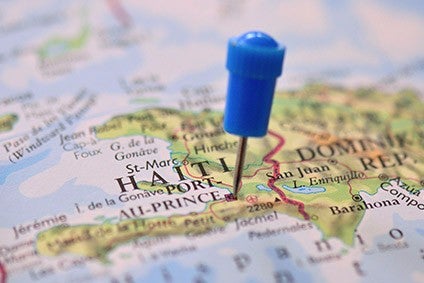
The US International Trade Commission (USITC) is undertaking a new factfinding investigation on US-Haiti trade and the impact of US trade preference programmes on Haiti’s economy and workers.
The Commission’s report will provide an overview of Haiti’s international trade since 1980, with special emphasis of the impact of the Caribbean Basin Economic Recovery Act (CBERA), Generalized System of Preferences (GSP), Haitian Hemispheric Opportunity through Partnership Encouragement (HOPE) Act of 2006, HOPE II in 2008, and the Haiti Economic Lift Program (HELP) in 2010, and the Trade Acts of 2000 and 2002 on Haiti’s trading relationship with the United States, Haiti’s economy, and workers.
The findings of the ITC probe will likely be used by lawmakers in determining whether to extend the HOPE and HELP trade preference programmes benefitting Haiti manufacturers past their current 30 September 2025 expiration, according to international trade law firm Sandler, Travis & Rosenberg (ST&R).
The investigation, US-Haiti Trade: Impact of US Preference Programs on Haiti’s Economy and Workers, Inv. No. 332-590, was requested by the US House of Representatives Committee on Ways and Means (Committee) in a letter received on 22 February.
Haiti is currently the thirteenth largest source of apparel to the US market, representing 1.36% of imports by volume. Key to the country’s growth as a sourcing partner has been the 1983 Caribbean Basin Economic Recovery Act, and the amendments that were made to it via the Caribbean Basin Trade Partnership Act (CBTPA), the Haitian Hemispheric Opportunity through Partnership Encouragement (HOPE) Act, and the Haiti Economic Lift Program (HELP) Act.
At the end of last year, US senators were weighing legislation to extend the Haitian Hemisphere Opportunity through Partnership Encouragement (HOPE) Act and the Haitian Economic Lift Program (HELP) Act trade preference schemes until 2035.

US Tariffs are shifting - will you react or anticipate?
Don’t let policy changes catch you off guard. Stay proactive with real-time data and expert analysis.
By GlobalDataAt the time, Steve Lamar, president and CEO of the American Apparel & Footwear Association (AAFA) said: “Haiti is an important partner to the industry, both as a source of finished apparel and a market for American-made components.
“Haiti has experienced many hardships in recent years, from natural disasters to political unrest. Renewing these programmes encourages companies to continue to work in Haiti and grow the industry there. While a stronger industry is beneficial for the Haitian people, it also supports thousands of American jobs that rely on Haiti as a market for US-made textiles.
The ITC’s investigation will prepare a public report providing:
- An overview of the Haitian economy and its competitiveness;
- An examination of the role of U.S. preference programs in shaping Haiti’s economy; and
- Case studies on goods currently and historically exported from Haiti such as apparel, tropical fruits, and sporting goods, including baseballs, softballs, and basketballs.
The USITC expects to submit its report to the Committee by 22 December.



